Published on October 30, 2022 by Zoltan Nyaradi
Timisoara, a city with a rich history and a vibrant cultural scene, boasts numerous landmarks that tell the tale of its past and present. Among these, Unirii Square or Union Square stands out as a bustling hub that encapsulates the spirit of Timisoara. This historic square, located in the heart of the city, serves as a focal point for both locals and visitors, offering a unique blend of history, culture, and modernity.
St. George Cathedral
The St. George Cathedral (also known as the Dome Cathedral) in Timisoara, located in the historic center of the city, is one of the most impressive religious constructions in western Romania. The Baroque-style building was constructed between 1736 and 1774 and is dedicated to St. George. The St. George Cathedral represents a significant symbol of local history and culture, attracting numerous visitors eager to explore the rich architectural heritage of Timisoara. This is the only place in Timisoara where you will find two cathedrals very close to each other, I’m referring to the Roman Catholic Cathedral and to the Serbian Orthodox Cathedral.
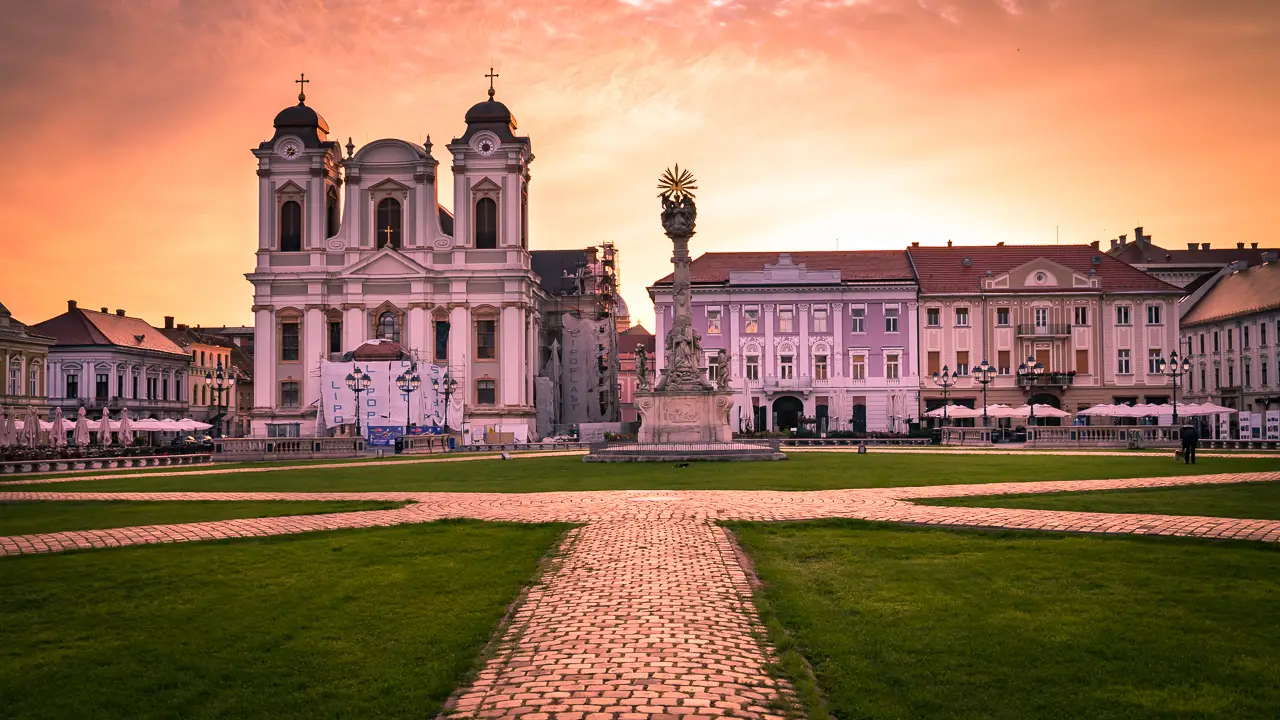

The fountain in Unirii Square
Right behind the statue of the Holy Trinity there is a smaller fountain with drinkable water which is perfect especially if you visit this place on a hot summer day.

The Baroque Palace
Situated in Unirii Square, the Baroque Palace is a notable architectural gem that showcases the Baroque style’s elegance. Today, it houses Timisoara’s National Museum of Art. The building’s ornate facade and historical significance make it a prominent landmark in Unirii Square.

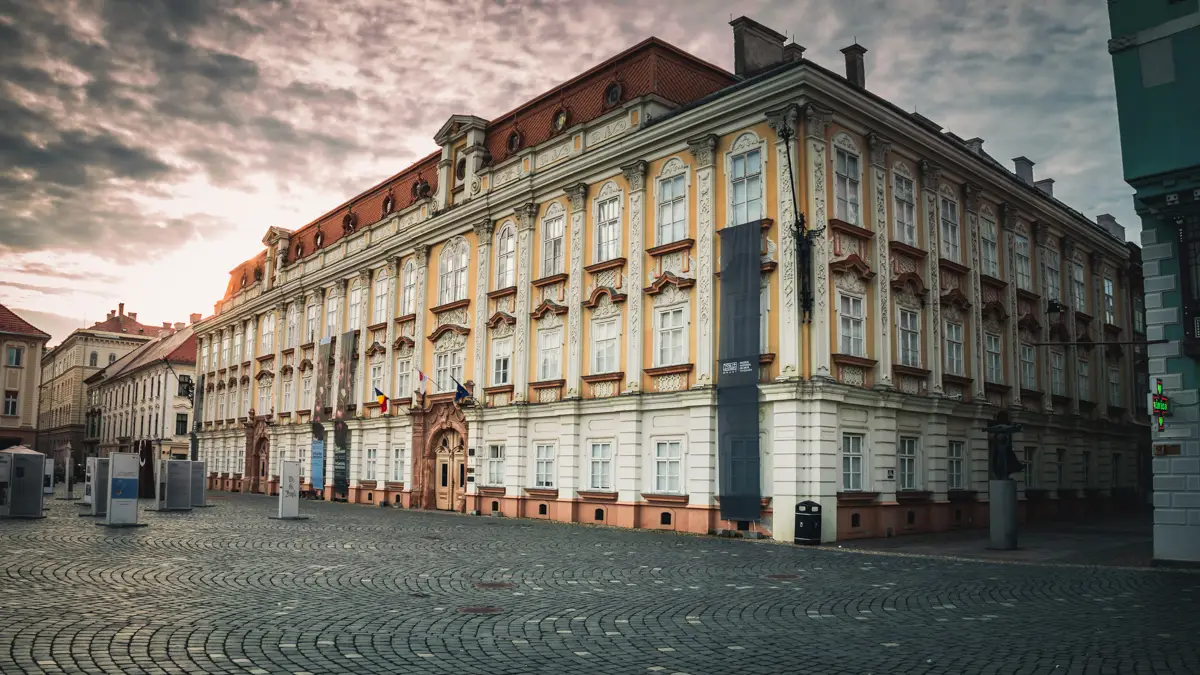
The Brück House
A striking example of Art Nouveau architecture, the Brück House is located on the eastern side of Unirii Square. Designed by architect Laszlo Székely, the building features Hungarian folklore motifs and intricate details that exemplify the Art Nouveau aesthetic. The Brück House adds a touch of modernity and artistic flair to Unirii Square, standing out as a testament to the city’s architectural diversity.
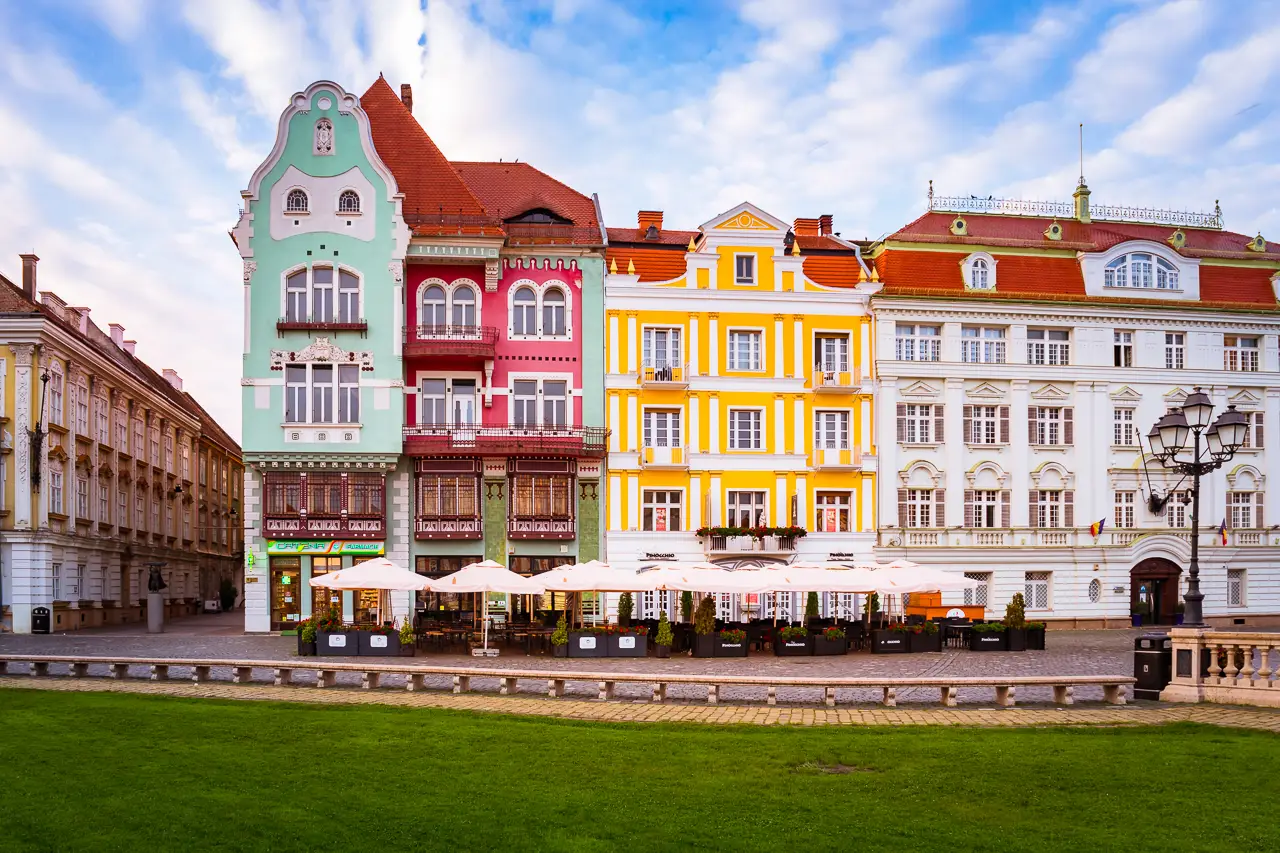
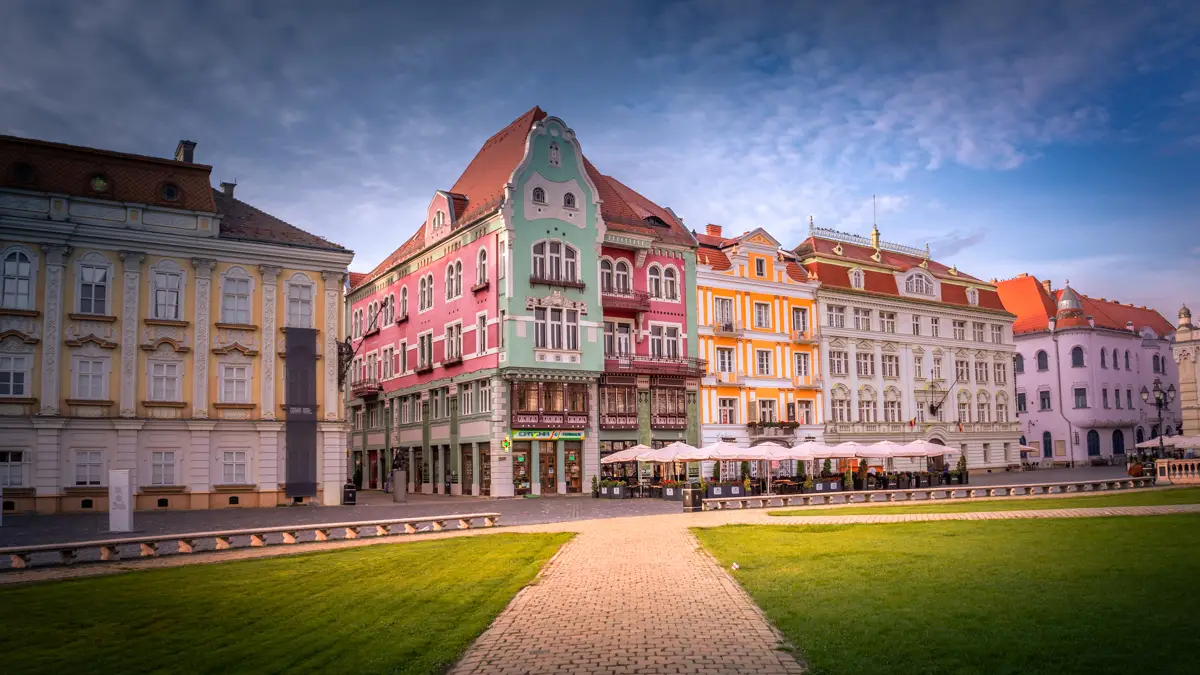
The Serbian Orthodox Episcopate and Cathedral
Constructed concurrently with the Episcopal Palace, the Serbian Orthodox Cathedral, devoted to the Ascension of the Lord, was finalized in 1748, a fact substantiated by an inscription preserved within its walls. Exhibiting Baroque architectural style, the church has predominantly preserved its authentic form from the 18th century.
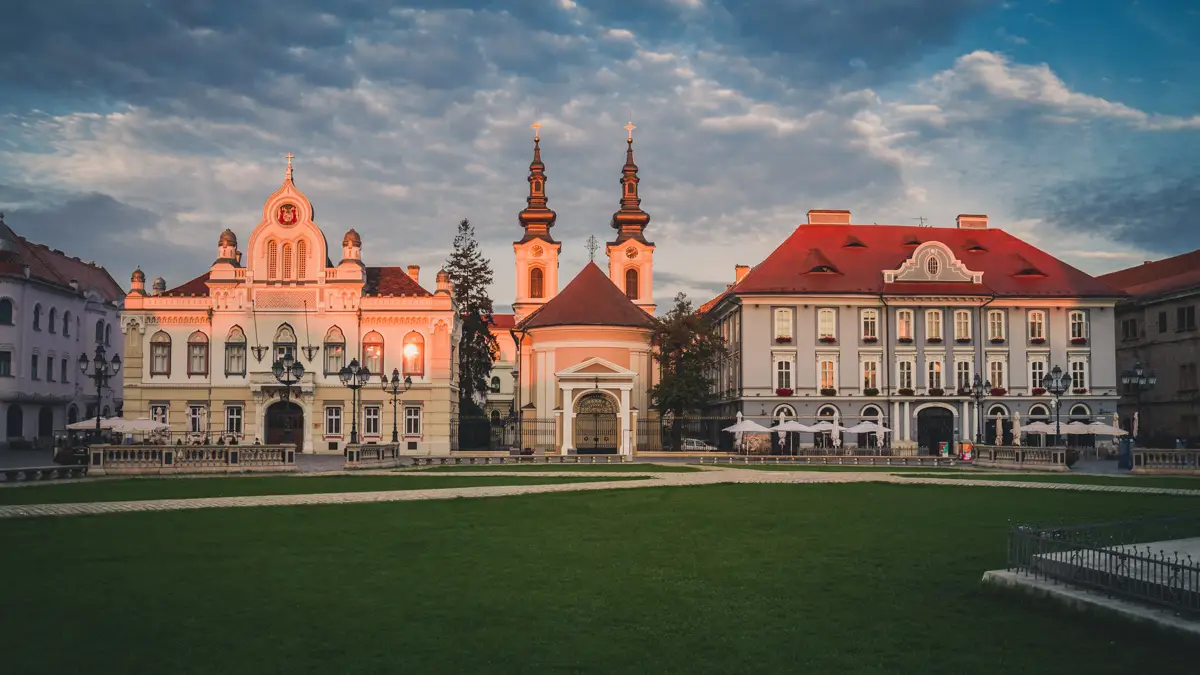
Miksa Steiner Palace
Miksa Steiner Palace stands as a historic edifice constructed in the latter part of the 19th century. Renowned for its remarkable architecture, the palace mirrors the eclectic style characteristic of that era. Named in honor of its initial proprietor, Miksa Steiner, an affluent industrialist and philanthropist, the palace holds a significant place in the city’s history. This building is located between the La Elefant House and the Serbian Orthodox Episcopate.
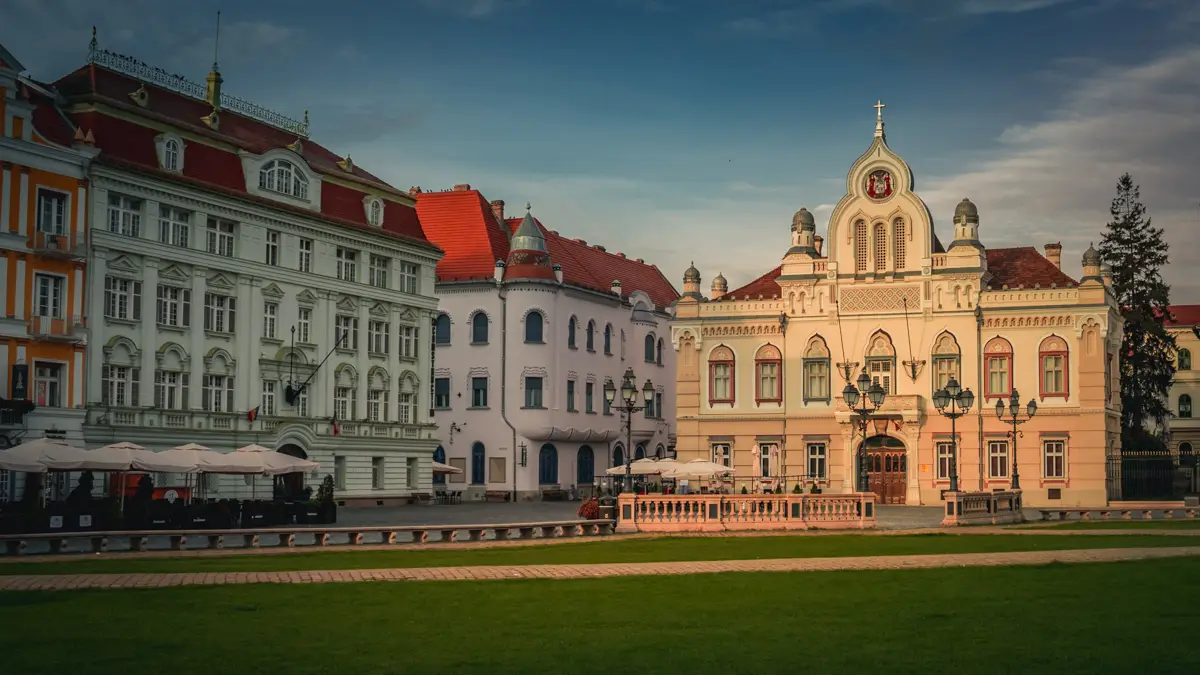
The Holy Trinity statue
Right in the middle of the Unirii Square you will find the Holy Trinity statue which is also known as the Plague statue. This statue was built in remembrance of the plague which devastated the Banat region in the 18th century.
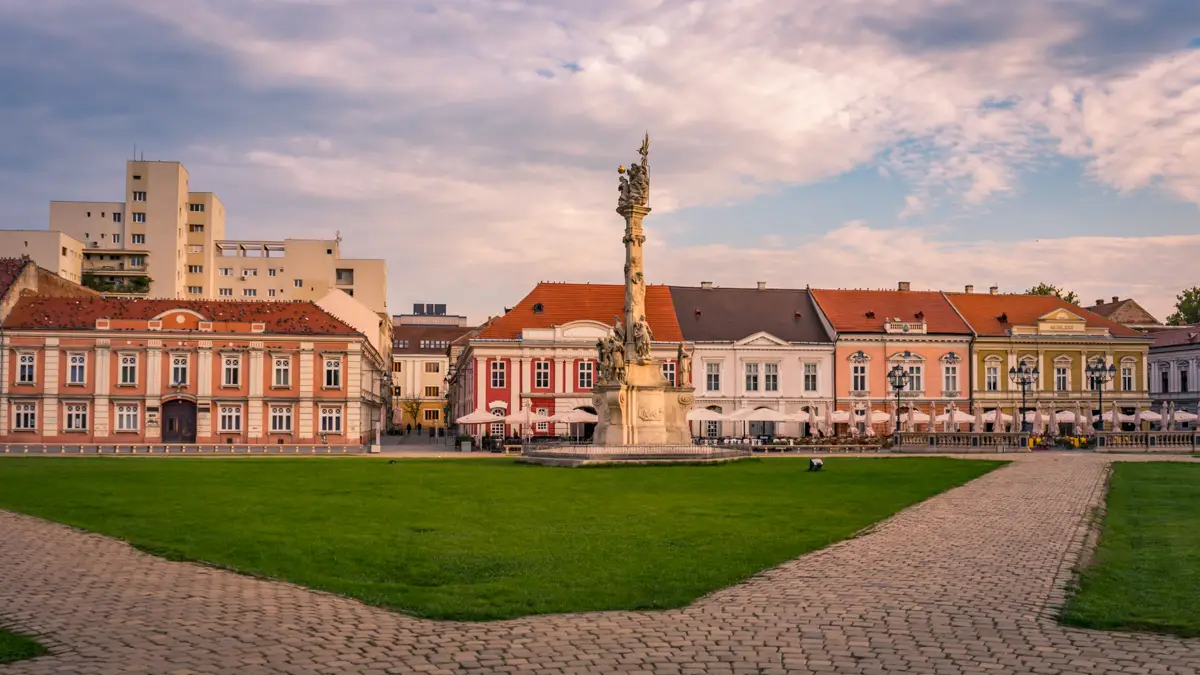
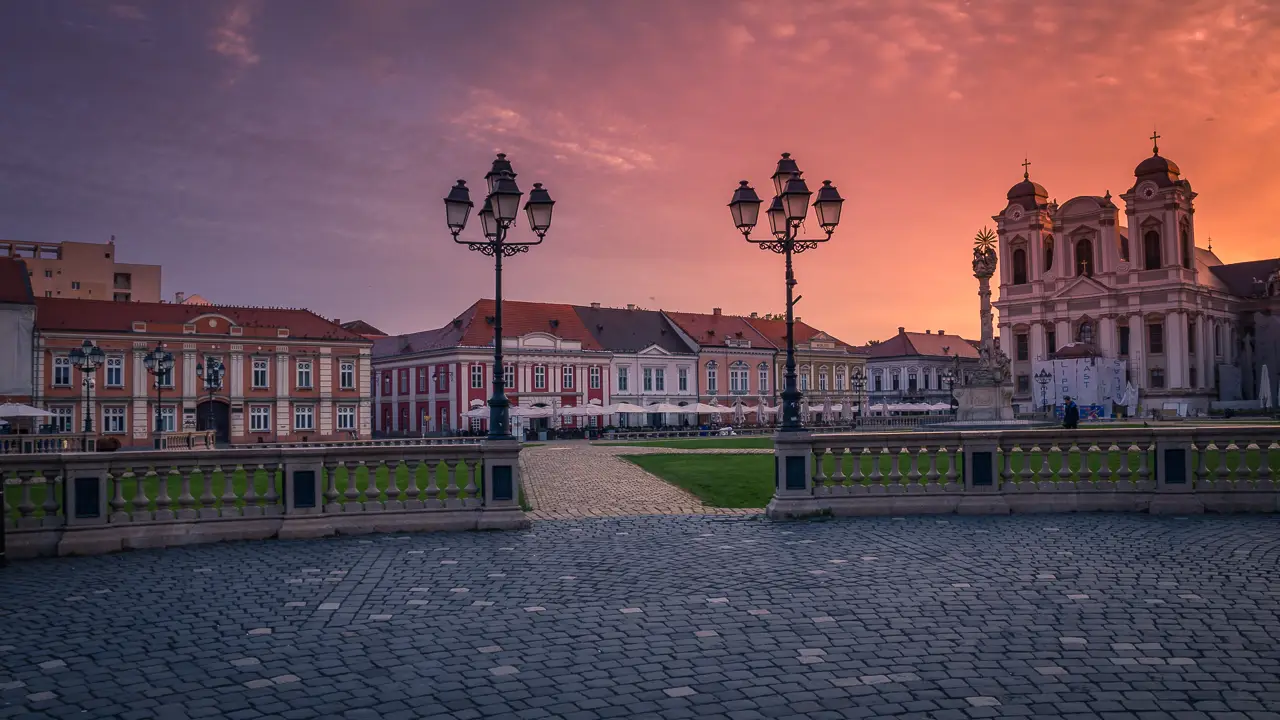
Besides the old buildings located in Unirii Square, here you will also gonna find many restaurants, terraces and bars.
Don’t forget to explore Victory Square as well since it’s very close to Unirii Square.

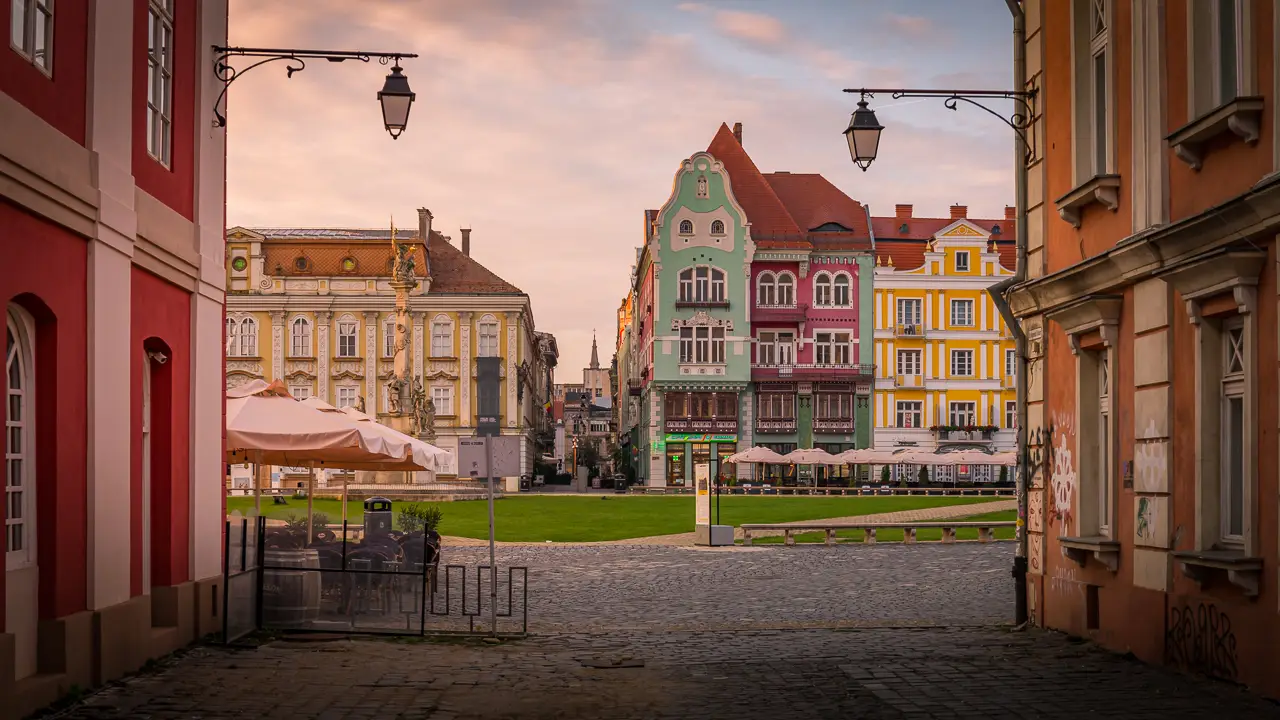
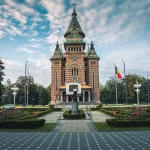



Leave a Reply